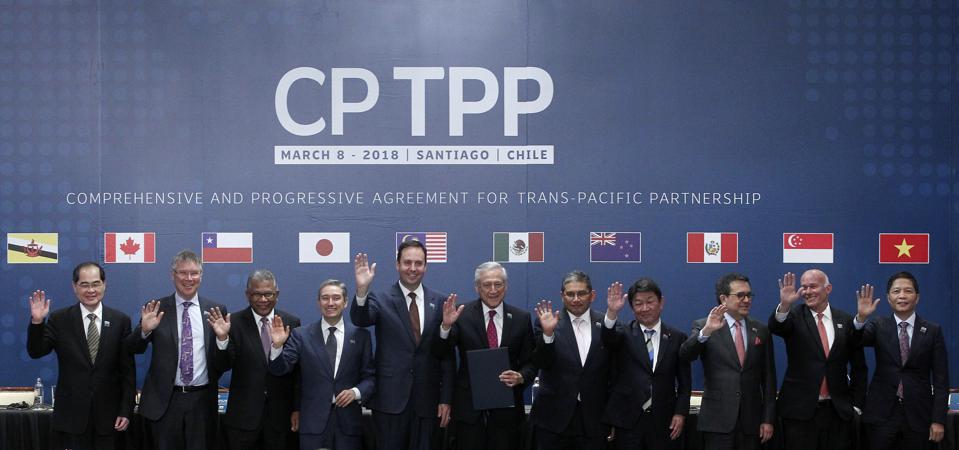Late last night, the UK government put pen to paper on the Comprehensive and Progressive Agreement for Trans-Pacific Partnership (CPTPP), joining eleven other nations in a trade pact worth some $13.6 trillion. Britain is the first European country to join the bloc, unlocking — the government hopes — a world of commercial opportunities.
But in the near-term, the pay-off is expected to be minimal. The UK already had deals with the majority of CPTPP participants as part of its EU membership — deals which were carried over post-Brexit. Only Brunei and Malaysia are fresh additions, accounting for less than 0.5% of Britain’s total trade.
Over the next decade or so, government estimates suggest CPTPP membership will represent a gain of less than 0.1% of GDP — desperately short of the longer-term financial toll of Brexit, forecasted at around 4% of GDP. But that’s only taking into account trade. CPTPP involvement removes a huge amount of red tape when it comes to finance, useful when more than 8% of UK foreign investment originates from CPTPP member states.
For the government, it’s this promise of future profit that underscores the importance of the trans-pacific partnership. The agreement will advance the UK’s dreams of rapid global expansion in services and digital trade, ministers say, and strengthen the country’s links to some of the planet’s faster-growing economies.
The big win, however, would be sealing a trade deal with the US — something that has eluded British negotiators since leaving the EU — via CPTPP. America remains the UK’s single largest trading partner, and there’s little doubt that government officials hope the trans-pacific partnership might serve as a vehicle for accord with their counterparts across the pond.
But at the moment, the chances of the US joining CPTPP seem vanishingly small. A rebuke of economic globalization is one of the few areas on which Republicans and Democrats agree — whether you’re Joe Biden, Donald Trump, or any of the other runners and riders for the 2024 presidential election, the last thing you’re likely to support is more jobs outsourced overseas, more power in the hands of big multinational businesses, and more reliance on fragile and fragmented global supply chains.
CPTPP membership is also lumbered with other potential pitfalls for the UK. Critics point out that the pact may lead to an erosion of environmental standards, for instance, with palm oil plantations in Malaysia a key driver of deforestation and biodiversity loss. EU tariffs on palm oil are designed to mitigate this ecological damage, but the UK is understood to have agreed to scrap duties as a condition of CPTPP membership. There are also concerns that the terms of the agreement might undermine British farmers and leave the country at threat of being sued by multinational corporations in closed courts.
At present, CPTPP memberships appears a symbolic victory for Britain outside of the EU — and a marker for more bountiful opportunities in the future. But if and when these opportunities will materialize is difficult to say, and at all times the ultimate Brexit question looms large: at what cost will they come?

